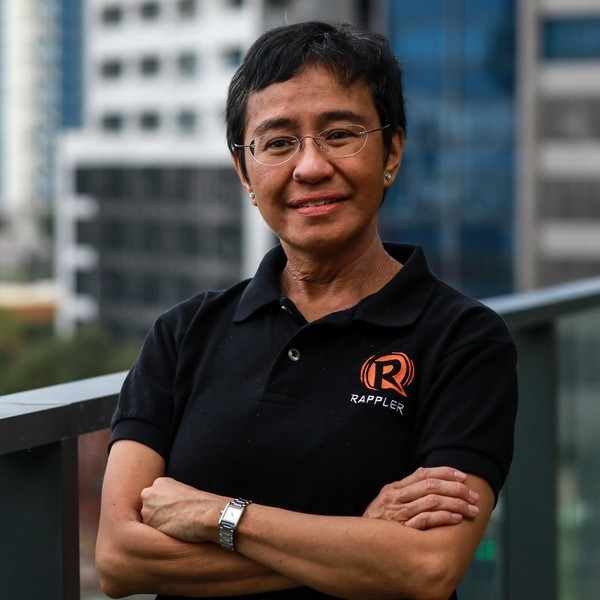There were two winners of the Nobel Peace Prize in November 2021. A Filipino and a Russian, both of whom were journalists, reported the truth without yielding to great pressure. Originally, the Nobel Peace Prize was regarded to be awarded to activists or politicians. It is the first time in 86 years, since Carl von Ossietzky in 1935, that a journalist has been awarded the Nobel Peace Prize. Among 2021 Nobel Peace Prize winners, Maria Ressa is the leader of Rappler, a Philippine investigative media outlet. She and Rappler took the lead in reporting the corruption of the regime of Rodrigo Duterte, the 16th President of the country. Let’s take a look at her journey to realize what she’s gone through for freedom of expression.

Maria Ressa was born in the Philippines in 1963. She and her family immigrated to the United States in the 1970s when martial law was imposed in the Philippines under the dictatorship of President Ferdinand Marcos. When she returned to Manila to continue her studies after graduating from college in the United States, historic protests such as the People Power Revolution[1] were in full swing. As her country was making a move towards democratization, Maria Ressa began working in journalism. After working in the Philippine press, she joined CNN in the 1990s as an investigative reporter and foreign correspondent. By 2012, Maria Ressa launched the Rappler website. The site grew rapidly and soon became one of the Philippines' biggest sources of information. Rappler and she received a lot of attention, especially in 2016 when Rodrigo Duterte, former mayor of Davao, ran for president. There were countless accounts on Facebook that spread false glorifications about Rodrigo Duterte, and it was serious enough to be reported in the New York Times. Rappler took on Rodrigo Duterte directly, successfully tracking 26 fake accounts and asking Facebook to remove them. Even after Rodrigo Duterte was elected president the following year, Rappler was one of the few news outlets criticizing his policies. She also released coverage of the numerous massacres caused by the president's drug wars. Soon after, the Philippine government began to impose sanctions on her. In 2017, Rappler was forcibly shut down, and Maria Ressa faced social media terrorism, tax evasion charges, and lawsuits, all trying to pressure her to cease her actions. She also struggled with continual arrests as the authorities issued numerous warrants for her. Maria Ressa, who continued her walk despite the oppression of the state power, was finally recognized for her work in the world and won the Nobel Peace Prize in 2021. The Nobel Committee explained her award as follows: “freedom of expression to expose abuse of power, use of violence, and growing authoritarianism in her native country.”
Maria Ressa's life is covered in more detail in the documentary A Thousand Cuts (2020). Fortunately, Rappler is now actively delivering domestic and international news to Filipinos. Maria Ressa, who pursues the truth in a modern society where false information and provocative news are pouring in, makes us look back at ourselves. CAH applauds Maria Ressa for her faith and effort.
[1] 1986. The democratic revolution that overthrew dictator Ferdinand Marcos, who ruled the Philippines for 21 years.

